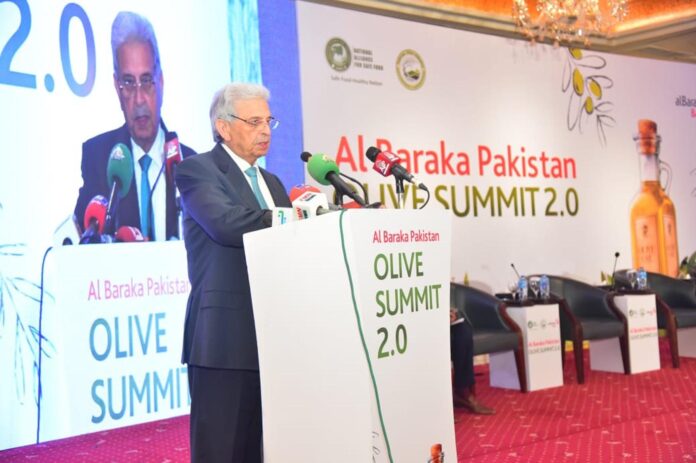Minister for National Food Security and Research Rana Tanveer Hussain said Tuesday that the government is formulating the National Olive Plan 2030, a comprehensive policy framework focused on research, investment, training, and international cooperation to promote sustainable olive cultivation across Pakistan.
Addressing the Pakistan Olive Summit 2.0, the minister said the olive sector could become a milestone in Pakistan’s economic growth, adding that both northern and southern regions possess vast potential for cultivation.
He noted that self-sufficiency in olive production is achievable and that olive oil could emerge as a major export product under the “Made in Pakistan” brand.
Hussain said olive farming would strengthen rural economies, enhance farmers’ income, and ensure efficient land use. Since olive trees are drought-tolerant, he added, their cultivation would also help conserve water and protect the environment.
He stated that the ministry is integrating modern technology throughout the olive value chain, from cultivation and processing to packaging and marketing. The government is also adopting Public-Private Partnership (PPP) models to accelerate investment and establish Olive Clusters to enhance collaboration among farmers, experts, and investors.
The minister highlighted that expanding the olive sector could help reduce Pakistan’s heavy dependence on edible oil imports, saving billions in foreign exchange each year. He described the olive industry as an example of climate-smart agriculture that supports soil preservation, temperature regulation, and carbon reduction.
Hussain also encouraged young farmers to play an active role in olive cultivation by adopting modern scientific methods and connecting with emerging international markets.




